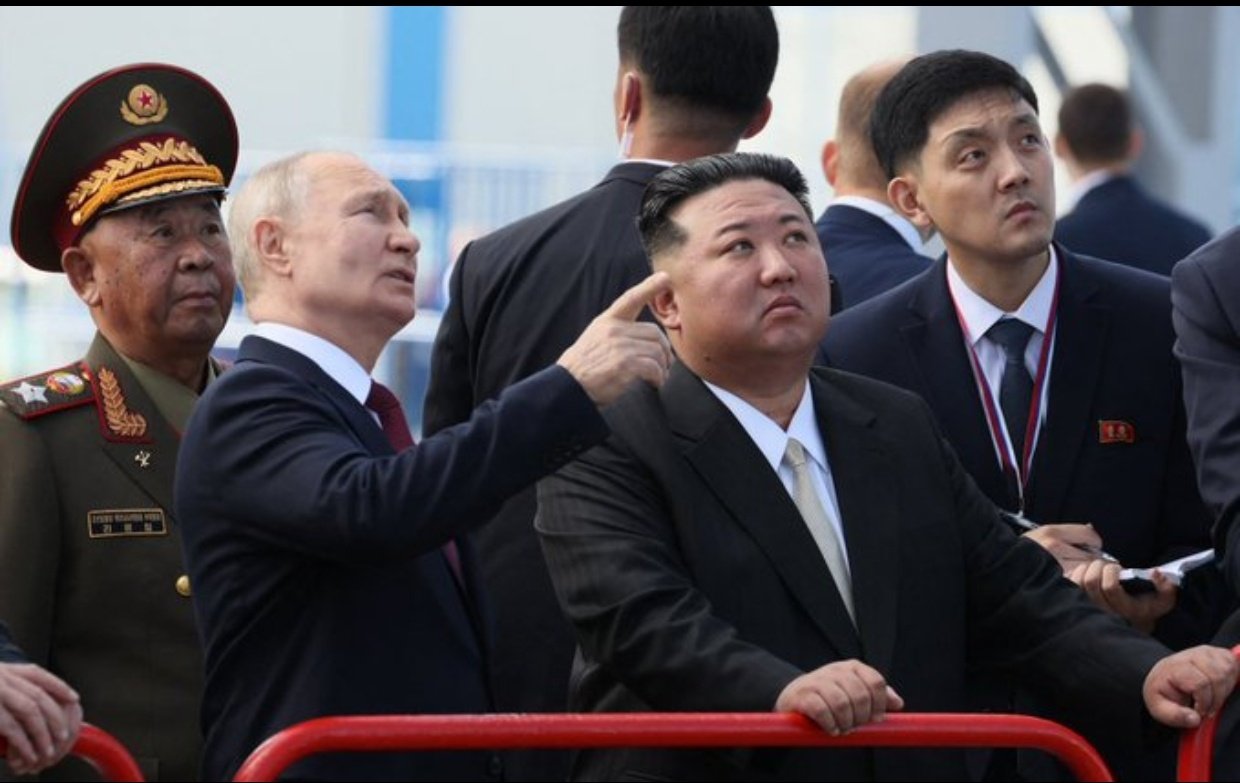As concerns persist over the deployment of North Korean troops in the Ukraine war on the side of Russia, a new report has claimed that Moscow secured military assistance from Pyongyang in exchange for food and grains.
Citing a lawmaker familiar with the situation, South Korean publication The Korea Herald reported on November 3 that Russia is purportedly paying North Korea in cash, food, and space technology to support it in the conflict. The report comes days after South Korean intelligence declared that troops from the Democratic People’s Republic of Korea (DPRK), or North Korea, had been deployed to Russia.
The allegations have also been confirmed by the US State Department. In a statement published on October 31, the US Secretary of Defense Lloyd J. Austin III said: “We now assess that North Korea has sent around 10,000 of its soldiers to train in eastern Russia.”
This makes The Korea Herald’s recent assertion all the more significant and intriguing. The publication quoted South Korean parliamentary intelligence committee member Wi Sung-lac as saying that North Korean soldiers are believed to be getting about $2,000 a month from Russia for their service, which, if multiplied by 10,000 soldiers, would amount to at least $200 million a year.
Additionally, the lawmaker claimed, citing intelligence briefings, that Moscow is contributing to alleviating North Korea’s food crisis.
Citing North Korea’s own declaration that the country produces about four million tons of grain, including wheat, barley, and rice, annually on average, Wi noted: “The four million tons of grains that North Korea says it produces per year are about one million tons short of what it needs to feed the country.”
He added, “If Russia is offering 600,000 to 700,000 tons of rice, that is enough to cover more than half of what North Korea would need to meet the year’s demand.” Supporting his argument, the lawmaker said Russia has shipped between 50,000 and 100,000 tons of rice to North Korea in the past. “So you could say 600,000 tons is a bit more than the rice aid they received from Russia previously,” he said.
Wi further claimed that Russia’s arms purchases were easing the North Korean food shortage. He told the South Korean publication that a large portion of the food scarcity was “probably relieved through the arms trade” now that Russia is purchasing artillery shells from North Korea.
“By selling a few containers worth of artillery shells, Pyongyang can afford a lot more than hundreds of thousands of tons of rice,” he stated emphatically.
The EurAsian Times could not independently verify the report, and the South Korean administration had yet to take cognizance of the claims at the time of writing this report. However, we previously reported how videos and photos of North Korean soldiers in Russia had emerged on social media.

The presence of North Korean troops has rattled Ukraine as well as its allies in the West. The US Defense Secretary said last week that the North Korean soldiers have received training from Russian forces in artillery, unmanned aerial vehicles, and basic infantry skills, such as trench clearing.
“The Kremlin has also provided these [North Korean] troops with Russian uniforms and equipment, and all of that strongly indicates that Russia intends to use these foreign forces in frontline operations in its war of choice against Ukraine,” Austin said. In a stern warning, he emphasized: “Make no mistake, if these North Korean troops engage in combat or combat support operations against Ukraine, they would make themselves legitimate military targets.”
The Secretary also noted that this is the first time in over a century that Russia has hosted foreign troops on its soil.
The development has triggered a fierce response in Ukraine, with the President leveraging it with his allies in NATO to appeal for long-range weapons and the authorization to use them on Russian targets inside the country.
Do Something, Don’t Watch: President Zelenskyy
Ukrainian President Volodymyr Zelenskyy called on his allies to stop “watching” and act before North Korean forces stationed in Russia enter combat zones.
Zelenskyy stated that Kyiv is aware of the location of the North Korean training sites and hinted at the possibility of a preemptive Ukrainian strike. However, he asserted that Ukraine cannot use Western-made long-range weaponry to strike targets deep into Russia without the consent of its partners.
Reiterating his demand to authorize the use of long-range weapons to attack Russian territory, Zelenskyy said in a post on X: “Through Moscow’s assistance, North Korea has advanced its artillery and missile capabilities. Now, they are learning the tactics of modern warfare. Thousands of North Korean soldiers are already near Ukraine’s borders, preparing to fight. And the world is still watching. We know where these North Korean troops are gathering in Russia. We could act preemptively if we had the means—long-range capability. Yet, America, the UK, and Germany watch.”
“We understand the logistics pipeline between Russia and North Korea that enables this aggression, and it must be stopped. Strong Asian nations, including China, have a role to play. If China truly advocates for ending the war, it must act,” he added in the post.
Ukrainian officials have repeatedly asserted that they require authorization to deploy Western weaponry to attack military bases, airfields, and munitions depots located far from the border to negotiate peace with Russia.
However, Russia has warned that the use of long-range missiles on its territory given by NATO countries would be tantamount to entering war against Russia.
With the threat of an escalation looming, the US and other NATO states continue to dismiss Ukrainian appeals, arguing that the long-range missiles are fewer in number and Ukraine is already using its long-range drones to strike targets deep inside Russian territory.
- Contact the author at sakshi.tiwari9555 (at) gmail.com
- Follow EurAsian Times on Google News